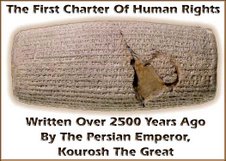

Forget glitz, crowds and over-development: the key holiday destinations in 2008 will be those remote corners of the globe that offer comfort, solitude and authenticity, writes Mark Jones.
Once upon a time, writing an article of predictions such as this would have been a straightforward task। Name-check some big openings, whisk around the atlas with a style thermometer naming what's hot, where's cool, where has gone tepid and who's been frozen out.
No longer. Now you can't look forward in the travel business without grappling with the Big Issues: global warming, geo-politics, China, international security. Many of these issues came together at the Bali conference this month - and what a choice of venue that was. Only a few years ago, nowhere better symbolised the innocence of modern multicultural travel: a place where young Australians flocked to get drunk and rich Britons fled to chill out. Now Bali - sadder, wiser, bombed, more wary Bali - will become shorthand for nothing less than the battle to save the planet.
Greener travel
The great hope for 2008 is that tourism, like other global industries, can find a way to be both green and profitable। At present, niche operators such as hotelier Campbell Gray (One Aldwych and Carlisle Bay, among others) can safely target the sliver of wealthy travellers who really do prefer a single perfect apple in an earthenware bowl to a huge basket of waxy fruit wrapped in cellophane. Still, a decisive shift is taking place and any hotel-owner who thinks that going green means putting a little card in the bathroom asking you whether you want your towels washed has spectacularly missed the point.
The World Tourism Organisation (WTO) says that tourism accounts for 10 per cent of global GDP. International tourism will triple in next 20 years and international arrivals are expected to rise from 700 million to 1.6 billion by the year 2020. That's a lot of people on the move burning a lot of fuel. But no sane environmental campaigner can simply set up camp outside Heathrow and tell us to stop flying.
More WTO figures: tourism employs over 250 million people. It is the main money-earner for a third of developing nations and the primary source of foreign-exchange earnings for the majority of the 49 least developed countries. So by all means choose Norfolk rather than The Gambia for your summer holiday if it eases your worries about air miles. But be aware that a tourism drought in these countries will be just as devastating as any other kind.
We will see more travellers opting for the so-called "gold standard" carbon offsetting schemes (too complicated to go into here, but it's about more than planting a few trees)।
Where we'll be going
The indications are that we will be choosing our big holiday more thoughtfully, opting to keep it real and low-scale in ...
In Botswana, Colin Bell, the founder of Wilderness Safaris, has gone into partnership with Mark Read (the former head of WWF in South Africa) to create the Selinda Reserve (due to open in April)। While in July, the celebrated Zambian guide Robin Pope is opening Pamulani in July, a new lodge on Lake Malawi, set inside a World Heritage Site. ...
Even before regime change happens in Washington, the hawks are in flight. That makes the prospect of visiting Iran or Syria, say, much more palatable. In fact, as anyone who has travelled in those countries knows, it's hard to feel safer and less hassled anywhere in the world; and it will take huge increases in visitor numbers to make magical places like Isfahan, Persepolis, Palmyra and Aleppo feel crowded।









